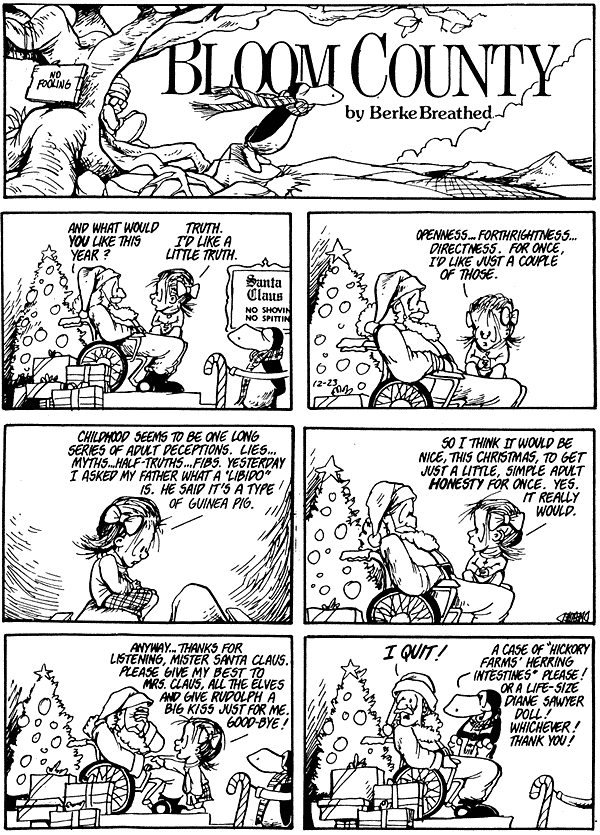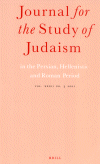I have addressed this subject several times on this blog before. I posted a poll almost two years ago and gave the example of Dean Dad. The recent CHE post by the Provost of Idaho State University regarding the limits of academic freedom and lunch with the CHE reporter for technology had me thinking about this subject again from a slightly different angle.

I understand many of the arguments for blogging anonymously within the academy. I am sympathetic particularly to those pre-tenure faculty members who worry that if their identity, and consequently ideas, are discovered that it might be used against them in tenure review. But as Provost Olson pointed out academic freedom, while not the license to do whatever a faculty member wants to do (as some have interpreted it) is all the protection needed for a faculty member to express ideas that challenge the status quo in their field. Of course that does not extend to extra-disciplinary speech. 1“Academic freedom, then, facilitates scholarship and teaching by eliminating that concern over personal safety. Institutions benefit from the system because their faculty members may go on to produce groundbreaking work that brings greater distinction to the institutions. But a college or university has no comparable incentive to protect extra-disciplinary speech because such discourse is peripheral to the normal workings of the campus.”
So at this point there is perhaps an argument for someone who wants to be outspoken about various topics that are outside of their field. If I am a biologist, for example, and I want to rail against religion, something well outside my field of expertise, then I might want to do so anonymously to protect myself against reprisals (or then again, maybe not). Of course we have lots of other laws that protect our speech and protect us against discrimination.
This is leading me to the growing conviction that academics should not blog anonymously. If we truly believe in the dissemination and examination of ideas then we should also be willing to own up to our ideas. There is some risk, but we are living in an age and country 2I fully realize that in some countries today, Egypt for example, there are not such protections and bloggers have been imprisoned and criminalized. with tremendous protections. To you believe what you are saying? Then say it clearly and be willing to defend your views in the light of day.
- 1“Academic freedom, then, facilitates scholarship and teaching by eliminating that concern over personal safety. Institutions benefit from the system because their faculty members may go on to produce groundbreaking work that brings greater distinction to the institutions. But a college or university has no comparable incentive to protect extra-disciplinary speech because such discourse is peripheral to the normal workings of the campus.”
- 2I fully realize that in some countries today, Egypt for example, there are not such protections and bloggers have been imprisoned and criminalized.




10 thoughts on “(Academic) Integrity and Anonymous Blogging”
Do tenured folk pee any differently than us unwashed and unlettered folk who pay their salaries? I am obviously ignorant about the games people play in the academy.
I cannot say that I have made a study of the micturation habits of scholars, but I would think we are all alike in this process. And the reality is that the games played by faculty are no different than anyone else, it is just that the academy does have additional guarantees to allow more “play,” so long as it is still within one’s field.
“Pay their salaries”? What are you talking about?
Presumably the fact that Penn State receives (usually, not so far this year) funding from the Commonwealth. Penn State is, however, only a “state affiliate” university which means that only something just south of 8% of our total budget comes from the legislature. If you omit agriculture and cooperative extension it is even less.
I don’t know Lee McCardle, and maybe you do, and so forgive me for butting in. But that particular anti-academic sneer always gets under my skin. I work at a private institution, which gets its funding just like any other business (by providing a service for pay, in the form of tuition, and by getting a return on its investments, in the form of an endowment). So, yeah, I have tenure, but I have yet to see dollar one of Mr. McCardle’s unwashed and unlettered money. But even if you work at a public institution, it’s not as if the state is doling out sinecures to professors, at least that’s not my understanding. The point of the state funding is to subsidize education for residents. Anyhow, whatever. Sorry, this is pretty off-topic.
I’ve had a few anonymous and pseudonymous blogs over the years. At some point the anonymity of the idiom led to its own destruction. I wound up becoming mean.
I won’t say I don’t get snarky when I blog under my own name. I’m just more accountable for the snarky comments I make.
I think that is a good point Jim. Anonymity seems to lend towards one becoming a little more lose or vitriolic than when we know that we can be held accountable.
I started my blog anonymously but within a few weeks made it public for two reasons. (1) I wasn’t going to say anything that I wouldn’t own up to since I know that ultimately no identities are secret on the internet if someone tries hard enough to find out the truth. (2) I wanted to engage with my audience. I wanted to know them and them to know me so that we could have a more fruitful discussion.
Snark is fine so long as you can be held accountable for it. Otherwise, it’s not a level playing field.
Jim suggests something important about anonymity, it seems to encourage modes of interaction that are not conducive to productive dialogue. Further, when a belligerent anonymous commenter enters a community of learning a dimension of uncertainty and fear is introduced that can hinder the free exchange of ideas.
The question of accounability here is central. Increasingly I am convinced that the pursuit of truth requires not only the freedom of expression, but a certain accountability for what is expressed and how it is expressed.
I have been thinking a lot about these things as I work on cultivating the excellences of digital dialogue. I talked to a graduate student about anonymous blogging on episode 5 of the Digital Dialogue podcast:
http://www.personal.psu.edu/cpl2/blogs/digitaldialogue/2009/07/digital-dialogue-podcast-05-identity.html